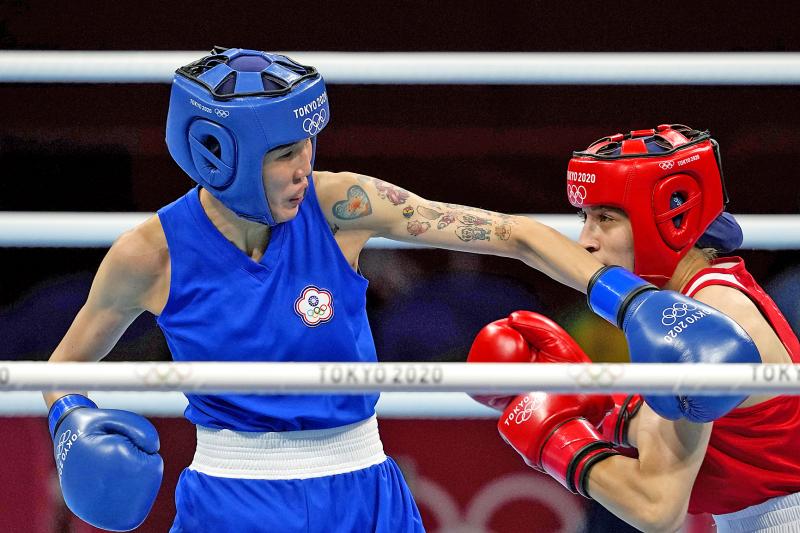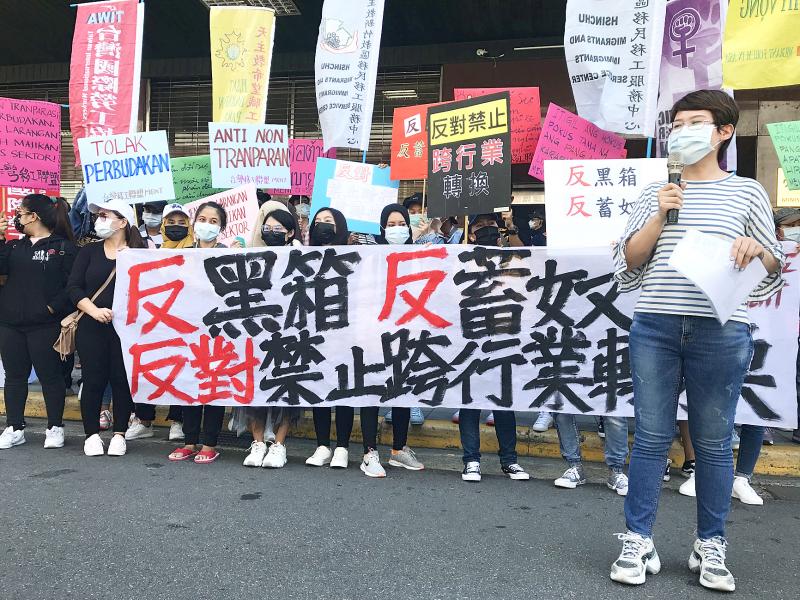The Olympics hold a special place in my childhood memory. My siblings and I were young immigrants to Atlanta in the American South. We watched in 1990 — hardly breathing, hardly believing — when Atlanta was announced as the host of the 1996 Games by the International Olympic Committee, then meeting in Tokyo.
When the Games finally came to Atlanta, boxing legend Muhammad Ali’s hands shook from Parkinson’s as he lit up Atlanta’s cauldron to roars of hometown cheers and tears. For months, we had dreamed it would be him. I watched, myself then serving as a language interpreter based in an athlete village, a week before a pipe bomb set off in our downtown Olympics Park.
Years later and despite my rational mind reconciling the rosy memories of my childhood with an organization tainted by corruption charges, it was impossible not to be drawn in by the muted spectacles of Tokyo 2020. A year late, but every race felt like a miracle out of the disruptions caused by COVID-19.

Photo: AP
Amid all the sporting, Taiwanese athletes have only amazed and delighted, representing a national team that has to eke out a right to compete. To march into the stadium on July 23 was already medal worthy in diplomacy. One couldn’t help but to be moved by the struggles and sustained hard work of Taiwanese Olympians to simply compete and be seen internationally in sporting.
Amazingly, the total medal count nearly places Taiwan among the top 20 teams, which it narrowly missed by placing 22nd. Nevertheless, the incredible showing by Taiwan’s Olympians in Tokyo certainly whets the national appetite for more in Paris 2024.
THE SHINE AND TAINT OF TAIWAN’S REPUTATION

Photo: Lee Ya-wen, Taipei Times
A political beacon of democracy, Taiwan holds its progressive, liberal values at its center, which its successful medal haul at Tokyo 2020 has helped to showcase to a global audience.
In the run-up to Tokyo, however, international coverage of Taiwan and human rights was dominated by how migrant workers have been harshly affected by arbitrary and discriminatory movement restrictions in the name of COVID-19 control. These measures were not mandated by central epidemiological authorities and were dubious on science grounds, since dormitories for migrant factory workers are known to be crowded, badly ventilated and difficult for residents to socially distance.
Authorities in Miaoli breached a state’s duty to respect human rights by establishing strict movement restrictions for all migrant workers. This, at first, even included migrant domestic care workers who typically stay with individual families. Increased law enforcement monitored community neighborhoods to detect and punish infringements.
These measures came under heavy criticisms by labor and human rights civil society for stigmatizing migrant workers as disease carriers and placing them under stricter restrictions than for the general population. These measures are currently under investigation by the Control Yuan.
Major international news outlets such as The Guardian, Nikkei Asia, The Diplomat and Financial Times all carried reports of employers in Taiwan who responded to the risk of coronavirus spread by prohibiting migrant workers from leaving their dormitories, except to and from work. There were additional reports of migrant workers being saddled with COVID testing and cleaning costs, in clear examples of some Taiwanese employers failing to meet their duty of care towards their workers.
FORCED LABOR AND MIGRANT WORKER RIGHTS
In recent years, sustained international focus by governments, civil society and businesses have increasingly spotlighted the singular issue of forced labor and migrant rights in Taiwan. The issue is complex and spans across various sectors of work in productive industries and social welfare.
At the heart are two key facts: first, structural faults are at the foundation of Taiwan’s migrant recruitment system. These are not problems unique to Taiwan, but they stand in stark contrast to Taiwan’s projection as a liberal democracy that puts human rights in the center of its national ethos.
Second, the spate of negative international press on the situation of migrant rights in Taiwan is not a typhoon to weather. Waiting for it to pass is not a viable strategy, for the spotlight will not pass. It will continue unless Taiwan embarks on and implements meaningful reforms.
Advocacy reports on various aspects of Taiwan’s migrant rights situation come out and heavily criticize Taiwan at regular intervals. These reports point out long existing problems of migrant employment outside basic labor protections. For migrant workers in the domestic care sector, they are not within the scope of the Labor Standards Act (勞動基準法). For migrant fishers in distant water fishing, they are outside the laws that only apply to those working in Taiwan’s territorial waters.
Every July, the announcement of Taiwan tier status on the annual US Trafficking in Persons Report brings the same cycle of reaction and reporting: those who decry Taiwan’s continued top-tier ranking versus those who celebrate Taiwan’s continued top-tier ranking. The binary frame simplifies the complexities of both sides to the same issue on the protection of migrant rights: on what could be done better and on what Taiwan has already done but is not enough.
STRUCTURAL REFORMS NEEDED
One of the most striking photos to come out of Taiwan’s run at Tokyo 2020 is of a table tennis veteran who didn’t medal. In the photo, a small white ball is suspended in air, floating like magic an inch from the fingertips of the five-time Taiwanese Olympian Chuang Chih-yuan (莊智淵). His face is taut in concentration. His eyes stare with absolute intent. The paddle perfectly balanced and ready.
During the same month as Chuang’s matches, a key international report was released on the recruitment of migrant workers between the Philippines and Taiwan. This report by the international human rights research organization, FairSquare Projects, is one of five reports into selected and strategic migration corridors. Together, they represent The Five Corridors Project, a serious effort by international civil society and funders to bring in structural reforms worldwide to the current system of recruiting low-wage migrant workers.
Taiwan is one of the five destination governments examined and is criticized for being reactive, not proactive, despite being aware of domestic issues surrounding migrant workers. The report offers an in-depth examination of the recruitment of migrants from the Philippines to Taiwan. It delves beyond the surface of what is already known and proposes a set of key recommendations for both governments to embark on reform: essentially, a roadmap.
The report is a well-balanced assessment of what Taiwan gets right. The reported notes that many of Taiwan’s domestic laws are good, grievance mechanisms are solid and there is legal aid and some job mobility for migrant workers. On the other hand, problems persist in all sectors where migrant workers are needed to meet labor demand, on land and at sea. This is the case for sectors of employment that are particularly dirty, dangerous and labor-intensive, unattractive to Taiwanese but are important for the local economy.
“Taiwan has the capacity and the know-how to ensure that workers brought into the country are recruited ethically and treated fairly on arrival. That so many foreign workers continue to fall through the cracks and into exploitation and abuse should be of serious concern to a progressive rights-respecting state that could be a leader on this critical issue,” said Nicholas McGeehan, FairSquare’s co-director.
FASTER, HIGHER, STRONGER
The Olympic cauldron is now extinguished in Tokyo; onwards to Paris 2024. With its Olympians home, Taiwan can rightfully bask in its unexpected haul of medals. Soak up the international positivity, the little island that could.
But the litmus test for Taiwan’s global reputation as a nation centered on human rights has just seriously begun. Foregrounded in these discussions are the central tenets of non-discrimination and fundamental principles and rights at work, especially concerning the elimination of forced or compulsory labor.
The choice in front of Taiwan is simple: keep reacting to the barrage of negative international press on the plight of migrant workers in Taiwan, like a game of whack-a-mole, or embark on deep reforms — committing to it as if it is another Olympic sport worthy of all the intense concentration, practice and dedication in the pursuit of Citius. Altius. Fortius. Faster. Higher. Stronger.
Undoubtedly, reforms to bring in a better system of labor migration for the world’s low-wage workers, key but often overlooked, is not an easy endeavor. It has multiple moving policy parts that need to be synchronized due to the very nature of international migration.
But here is the open secret: there is no country that has yet completely implemented the vision of responsible recruitment, even though there is no lack of aspiration to bring in migration with dignity. The field is wide open. There is no Whitlock to beat on the pommel horse, no line call in badminton to review, no heart-breaking misses for a podium spot.
The Olympics are over, but the test for Taiwan’s migrant rights reputation has just begun. Take the shot, Taiwan. Like a confident archer, fire that singular arrow into the night sky, light the cauldron that represents the hope of so many to see a more responsible system of migrant recruitment taking hold internationally. Humble and audacious, Taiwan can help, and the gold is all ours for the taking.
Bonny Ling, PhD, is a scholar and practitioner who works on international human rights and development. She writes on human rights, migrants, business responsibilities and international law. She can be reached at: bonny.i.ling@gmail.com.

April 28 to May 4 During the Japanese colonial era, a city’s “first” high school typically served Japanese students, while Taiwanese attended the “second” high school. Only in Taichung was this reversed. That’s because when Taichung First High School opened its doors on May 1, 1915 to serve Taiwanese students who were previously barred from secondary education, it was the only high school in town. Former principal Hideo Azukisawa threatened to quit when the government in 1922 attempted to transfer the “first” designation to a new local high school for Japanese students, leading to this unusual situation. Prior to the Taichung First

When the South Vietnamese capital of Saigon fell to the North Vietnamese forces 50 years ago this week, it prompted a mass exodus of some 2 million people — hundreds of thousands fleeing perilously on small boats across open water to escape the communist regime. Many ultimately settled in Southern California’s Orange County in an area now known as “Little Saigon,” not far from Marine Corps Base Camp Pendleton, where the first refugees were airlifted upon reaching the US. The diaspora now also has significant populations in Virginia, Texas and Washington state, as well as in countries including France and Australia.

On April 17, Chinese Nationalist Party (KMT) Chairman Eric Chu (朱立倫) launched a bold campaign to revive and revitalize the KMT base by calling for an impromptu rally at the Taipei prosecutor’s offices to protest recent arrests of KMT recall campaigners over allegations of forgery and fraud involving signatures of dead voters. The protest had no time to apply for permits and was illegal, but that played into the sense of opposition grievance at alleged weaponization of the judiciary by the Democratic Progressive Party (DPP) to “annihilate” the opposition parties. Blamed for faltering recall campaigns and faced with a KMT chair

Article 2 of the Additional Articles of the Constitution of the Republic of China (中華民國憲法增修條文) stipulates that upon a vote of no confidence in the premier, the president can dissolve the legislature within 10 days. If the legislature is dissolved, a new legislative election must be held within 60 days, and the legislators’ terms will then be reckoned from that election. Two weeks ago Taipei Mayor Chiang Wan-an (蔣萬安) of the Chinese Nationalist Party (KMT) proposed that the legislature hold a vote of no confidence in the premier and dare the president to dissolve the legislature. The legislature is currently controlled